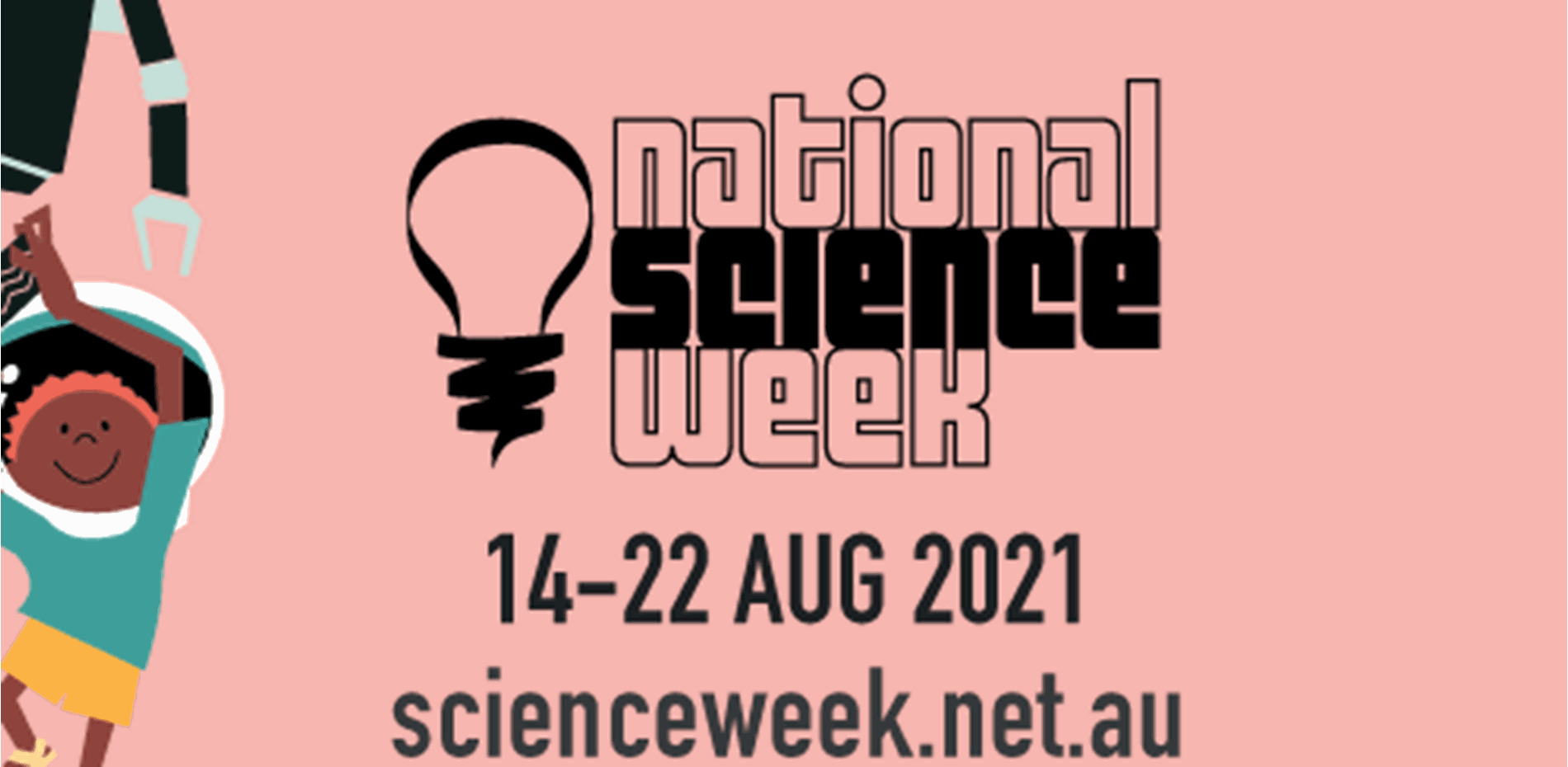National Science Week is turning 25 in 2021. The week runs from Saturday 14 through to Sunday 22 August.
Unfortunately, because of the COVID-19 cases in Canberra and the subsequent lockdown the National Science Week will look a lot different than was planned. Many of the scheduled events will be rescheduled or cancelled. Others will be moving online. Event listings are being updated in the National Science Week events calendar.
Science Week has grown into an annual celebration of all areas of science, from: physics, biology, chemistry, earth sciences and space science. Within those areas are fields such as: medical science, climate science, geology, zoology, genetics and so many more.
Science provides us with a unique understanding of the world and the universe around us and the universe within us.
Never has the importance of science been so stark.
Informed medical and health science and research has been at the forefront of our response to the COVID-19 Pandemic. Scientists have produced effective vaccines in a very short time and have saved countless lives.
Climate Scientists are laying bare the reality of what unaddressed climate change will do to the earth over the coming decades.
It is important we have more young people learning Science, Technology, Education and Math
(STEM) subjects at school. We need to foster a passion for science early on so we have more and more people going into these fields.
The Women in STEM is a great resource that is helping us to bridge the gender gap in STEM.
I know lockdown will be a challenge for parents and if you are looking for an exciting distraction then why not try a DIY National Science Week at home. There are also a lot of terrific online events and virtual tours that are accessible from home.
Resources can be found at:
Download all of the 2021 DIY Science activities (8.6 MB, zip).
Finally, a big shout out to all the scientists across the Canberra region as well all those across CSIRO, Questacon, Geoscience Australia, the Australian Research Council, the Bureau of Meteorology, ANSTO, the Australian Space Agency, Australian Institute of Marine Science (AIMS), National Measurement Institute, the Department of Industry, Science, Energy and Resources.
And too all the science teachers. It takes a passionate STEM teacher to create passionate STEM children and as a community we owe a lot to our educators Thank you and I look forward to participating in a successful 2021 National Science Week.



